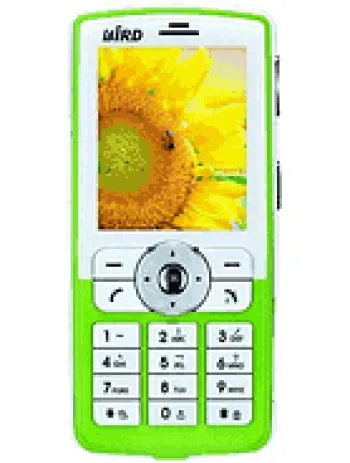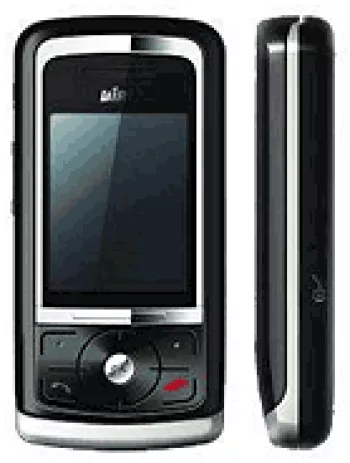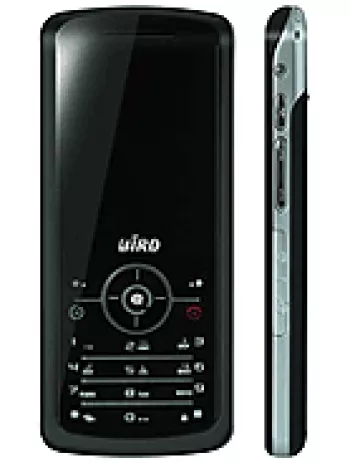
Network and Connectivity
The Bird D720 is equipped with basic GSM technology suitable for 2G network bands. It supports GSM 900 and 1800 bands, providing a satisfactory connectivity experience for its users at the time. While it includes GPRS Class 12, offering basic data service, it lacks the capability for EDGE, diminishing its speed and efficiency in data transmission. The absence of modern connectivity options such as Bluetooth and WLAN emphasizes its focus on core mobile functionalities rather than additional connectivity features.
Launch and Availability
Released in 2007, the Bird D720 was launched as a feature phone model catering to users who required essential mobile functions. Sadly, it has since been discontinued, making it a relic of past mobile technology for those seeking a simple, foundational mobile experience without the complexities of modern smartphones.
Design and Build
The phone sports a compact design, with dimensions measuring 100 x 46 x 15.9 mm and a weight of just 93 grams, making it lightweight and portable. Constructed to accommodate a Mini-SIM, its physical structure supports a simplistic aesthetic available in an array of colors such as Silver, Green, and Blue, appealing to diverse user preferences. The build primarily focuses on ease of use and classic mobile design principles.
Display Features
With a 1.9-inch TFT display offering 260K colors, the Bird D720 provides basic visual clarity for a feature phone. The screen’s resolution of 176 x 220 pixels (approximately 148 ppi density) ensures that essential information is clear and readable, although it does not match the high-definition displays of contemporary devices. The screen-to-body ratio is approximately 24.7%, indicative of its design focus on functionality over flair.
Memory and Storage
Internally, the Bird D720 comes with 60MB of storage, adequate for basic phone data and a limited amount of additional content. For expanded storage needs, a miniSD card slot is available, allowing users to enhance storage capacity as necessary. Its ability to maintain a phone book and record up to 20 dialed, received, and missed calls makes it a functional device for fundamental communication tasks.
Camera Capabilities
The device features a single 2MP main camera capable of video recording, which is modest by modern standards but was considered reasonable for a feature phone during its release period. The absence of a selfie camera highlights its focus on uncomplicated design and use, suitable primarily for taking occasional photos rather than high-quality photography.
Audio
The audio features include a loudspeaker for hands-free phone interactions and numerous alert types, including vibration and downloadable polyphonic or MP3 ringtones. However, the lack of a standard 3.5mm audio jack restricts its compatibility with various headphone models, although it was typical for devices during the era.
Communication Features
Communication through the Bird D720 is limited to essentials, featuring SMS, EMS, and MMS capabilities for sending standard text and multimedia messages. Its WAP 2.0 browser offers a basic browsing capability, preventing complex Internet interactions. The presence of an FM radio adds entertainment value, albeit limited, given the device’s exclusion of positioning services.
Games and Java Support
Entertaining users with built-in games, the Bird D720 provides a conventional gaming experience on feature phones. Additionally, its support for Java (MIDP 2.0) opens avenues for running Java-based applications, enhancing its functional capabilities slightly beyond standard feature phone offerings.
Battery Life
Driven by a removable Li-Ion 700mAh battery, the Bird D720 powers its basic functions reliably, offering up to 120 hours on standby and up to four hours of talk time. While the battery life is modest by today's standards, it aligns with the typical usage expectations of its era, catering well to users’ daily communication needs.
Conclusion
The Bird D720 embodies a classic era of mobile technology focusing on core functions and simplicity. While it lacks modern connectivity and high-tech features, its design, coupled with fundamental utility elements, makes it a suitable choice for users seeking an uncomplicated mobile experience. Its discontinuation marks an end to a simpler time in mobile technology, where the primary focus was communication rather than the multitasking capabilities demanded by today’s tech-savvy consumers.
Key Features of Bird D720
- GSM Technology with 2G bands (GSM 900 / 1800)
- Compact Dimensions: 100 x 46 x 15.9 mm
- Lightweight Design: 93 g only
- TFT Display with 260K colors
- 2 MP Main Camera with Video capability
- Expandable Memory with miniSD slot
- FM Radio functionality
- Support for SMS, EMS, and MMS messaging
- Java support with MIDP 2.0
- Removable Li-Ion 700 mAh battery with up to 4 hours talk time
- Available in multiple colors: Silver, Green, Blue
Disadvantages of Bird D720
- Uses outdated GSM technology with limited frequency bands (GSM 900/1800 only).
- Does not support EDGE, limiting mobile data speeds.
- Discontinued model, making support and repair increasingly difficult.
- Small display size of 1.9 inches with low resolution (176 x 220 pixels).
- Low internal storage capacity of only 60MB, although expandable via miniSD.
- No front-facing selfie camera.
- Lacks Bluetooth and WLAN, making wireless connectivity options very limited.
- Does not have any positioning features such as GPS.
- Uses a proprietary USB connection, which may require specific cables.
- No 3.5mm headphone jack, limiting headphone options.
- Low battery capacity (700 mAh) with limited talk and standby time.
View Also
More Phones
All Rights Reserved +14267 Phones © Mobilawy 2025
























